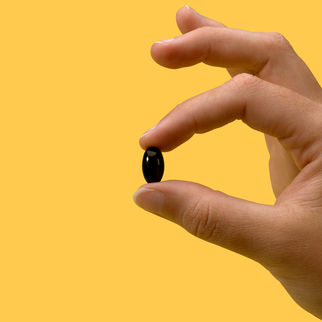Muscle recovery is a crucial element in any fitness journey, yet it's often overlooked in favor of more exciting topics like performance gains or weight loss. However, ignoring muscle recovery can lead to overtraining, hinder your progress, and increase the risk of injury.
So, how long does muscle recovery actually take? Join us as we dive into the science of muscle recovery and why it's so essential for your overall wellness.
What Is Muscle Recovery and Why Is It Important?
Muscle recovery is the process that allows your body to repair and strengthen your muscles after exercise. During a workout, especially a high-intensity one, your muscles undergo tremendous stress, which results in microscopic tears to the muscle fibers.
This damage is completely normal and is actually necessary to strengthen and build muscle. The only thing is your body needs time to heal itself from this damage. That’s where the concept of muscle recovery comes in.
Giving your body time to repair prevents you from overtraining, which can lead to more severe muscle damage and prolonged muscle soreness, and can even hinder your weight loss or muscle gain goals. In the worst-case scenario, it can result in injuries that sideline you for weeks or even months, completely halting your progress.
How Long Does Muscle Recovery Typically Take?
The timeline for muscle recovery can vary greatly depending on several factors that we’ll get into shortly. However, a common timeframe is 24 to 72 hours following a workout. This is often when you experience what's known as delayed onset muscle soreness (DOMS).
DOMS is that achy feeling you get in your muscles one to two days after a tough workout, especially if you've just started a new exercise routine or pushed yourself harder than usual. Contrary to popular belief, it has nothing to do with lactic acid build-ups, but DOMS is a normal part of the recovery process and a sign that your body is adapting to your workout.
Signs That Your Muscles Have Recovered
Recovery isn't just about waiting for a specific amount of time to pass. Everyone is different, and some people will recover sooner than others.
There are various physical and performance indicators that can signal your muscles have adequately recovered:
- Restored strength: If you're able to perform at the same level or better than your last workout, it's a strong indicator that your muscles have recovered.
- Absence of discomfort: While some discomfort might be typical after a heavy workout, persistent discomfort is a red flag. A complete absence of pain is a good indicator of muscle recovery.
- Elevated mood and energy: Overtraining can affect not just your physical well-being but also your psychological state. Feeling energetic and ready to tackle another workout is often a sign that you've adequately recovered.
- Quality of sleep: Poor sleep or difficulty in falling asleep can often indicate that your body is still in the recovery phase. A good night’s sleep usually signifies adequate recovery.
What Factors Influence Muscle Recovery Time?
Understanding the factors that influence workout recovery times can help you optimize your fitness routine and ensure you're giving your body the rest it needs. Several factors and lifestyle choices can significantly impact how quickly your muscles recover after a workout.
Individual Differences and Their Impact
Every person is unique, and this uniqueness extends to how our bodies respond to exercise and recover afterward. Let's explore some of these individual differences:
- Age: As we age, our bodies naturally take longer to recover from physical exertion. This is due to slower cellular regeneration and other age-related changes. Older individuals, therefore, may experience longer recovery times compared to their younger counterparts.
- Fitness level: Your current fitness level plays a significant role in your muscle recovery time. If you're in good shape and exercise regularly, your body is more adapted to the stress of exercise, allowing you to recover quicker.
- Genetics: Genetics can influence your muscle fiber types and your body's immune response, both of which can impact your recovery time. Some people may naturally recover faster than others due to these genetic variations.
- Gender: Hormonal differences between sexes can also impact muscle recovery times. Men often recover faster due to higher testosterone levels, which can enhance muscle repair and growth.
- Training intensity: Intense exercises, such as strength training or weight training, generally require longer recovery periods. This is due to the greater muscle strain and microtears in the muscle tissue that lifting weight can cause.
The Impact of Nutrition and Hydration
What you eat and drink can greatly influence your muscle recovery time. Here's an overview of just how this works:
- Protein: Protein is crucial for rebuilding muscle fibers damaged during exercise. Consuming adequate protein after a workout can speed up this repair process and shorten your recovery time.
- Omega-3 fats: Omega-3 fats, particularly DHA and EPA, are known for their tension-soothing properties. They can help soothe tense muscles and promote faster recovery.
- Hydration: Staying well-hydrated before, during, and after a training session supports the function of your blood vessels and helps maintain your muscle elasticity, both of which can aid in muscle recovery.
- Carbohydrates: Consuming carbs post-workout can help restore glycogen stores in your muscles, aiding in their recovery. Glycogen is a form of sugar that your muscles use as fuel during exercise.
- Antioxidants: Foods high in antioxidants can help ease muscle tension and support overall recovery. Antioxidants help maintain cell health during exposure to free radicals produced during exercise, thus working to support proper muscle repair.
The Role of Rest and Sleep
Proper rest and a good night’s sleep are arguably the most important factors in muscle recovery. Rest days allow your muscles to repair and strengthen themselves — without them, you risk overtraining and delaying your recovery.
Sleep, on the other hand, promotes muscle growth and recovery through the release of growth hormones and cellular regeneration processes. Ensuring you get at least seven to nine hours of rest every night is just as important as your workout routine and your post-workout nutrition.
How Can You Speed Up Muscle Recovery?
Muscle recovery is a critical component of any successful fitness regime, but it's often the part that's most neglected. So, how can you give your muscles the best chance to repair, rebuild, and strengthen? Here are some strategies to help speed up your muscle recovery.
Perform Low-Intensity Exercises
Engaging in low-intensity exercises, such as walking or cycling, can promote blood flow to the muscles, helping to speed up recovery. These activities are gentle on the body, yet they effectively stimulate the muscle groups, aiding in faster recovery without causing further muscle strain.
Try Foam Rolling
Foam rolling, or self-myofascial release, is a great way to alleviate muscle tension and improve flexibility. By applying pressure to specific points on your body, foam rolling helps to aid in the recovery of muscles and assists in returning them to normal function.
Do Some Yoga
Yoga can serve as an excellent example of active recovery. It helps to stretch out your muscles, improve flexibility, and promote relaxation. Yoga also enhances blood flow to various muscle groups, which can significantly aid in the recovery process.
Take an Ice Bath
Cold water immersion or ice baths are often used by athletes to reduce muscle tension and soreness after intense training sessions. The cold temperature helps to constrict blood vessels and decrease metabolic activity, which reduces swelling and tissue breakdown.
Wear Compression Garments
Compression garments can also aid in muscle recovery. They work by improving circulation and reducing muscle soreness. The increased blood flow helps to deliver more oxygen to the muscles and remove waste products, aiding in faster recovery.
Take a Day Off
Sometimes, the best thing you can do for your body is to rest. Taking a day off from intense workouts allows your body the time it needs to repair and strengthen your muscles. Remember, rest days are as important as training days in a well-rounded fitness routine.
What Role Can Supplements Play in Muscle Recovery?
Supplements can play a significant role in muscle recovery. They can provide your body with the necessary nutrients it needs to repair and grow your muscles. Here are a few supplements that can aid in muscle recovery:
- Omega-3: Omega-3 fatty acids, like the ones found in iwi life supplements, are excellent for post-exercise muscle recovery. Not only can they soothe tense muscles, but they can even support muscle protein synthesis.
- Protein Powder: Your body needs protein for muscle repair and growth. Consuming protein powder after a workout can provide your muscles with the necessary amino acids they need to recover more quickly.
- Creatine: Creatine is known to aid in muscle recovery and growth. It helps to replenish your muscles' energy stores, allowing you to recover more quickly and perform at a higher intensity in your next workout.
The Bottom Line
Muscle recovery is a key aspect of any fitness routine. By incorporating strategies such as rest days, active recovery, proper nutrition, and supplementation, you can ensure your muscles recover effectively, allowing you to get the most out of your workouts.
Remember, a holistic approach to muscle recovery is best. Consider all aspects of your lifestyle and diet, and don't forget the potential benefits of adding iwi life omega 3 supplements to your routine to further support your muscle recovery. Your muscles will thank you!
Sources:
How Microtears Help You to Build Muscle Mass | University Hospitals
Is Lactic Acid Related to Delayed-Onset Muscle Soreness? | NCBI Bookshelf
Sex-Based Differences in Skeletal Muscle Kinetics and Fiber-Type Composition | PMC
Carb-Conscious: The Role of Carbohydrate Intake in Recovery From Exercise | NCBI Bookshelf
Sleep and Recovery | William & Mary
What Kinds of Exercises Are Considered Low-Intensity? | livestrong
5 Times When You Should Skip Your Workout and Take a Rest Day | NBC News
Creatine: What It Does, Benefits, Supplements & Safety | Cleveland Clinic



















